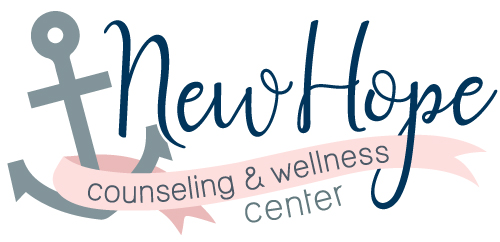Why is it so difficult for us to love ourselves and our bodies? While this is a common question, the answer isn’t so straightforward. The prevalence of Facetune, Photoshop, and face filters on social media can worsen depression and body dysmorphia. Online bullying, parasocial relationships, and TikTok trends like body checking and What I Eat in a Day vlogs can cause lasting damage to our self-esteem and deep dissatisfaction with our bodies. While some of these are not harmful on their own, together they work to reinforce a toxic beauty standard. Since “almond mom” started trending earlier this year on TikTok, the hashtag has taken a new form as users begin to deconstruct the lasting impact of diet culture.
Every generation has its own variation of the almond mom, so the trauma runs deep. “A moment on the lips, forever on the hips.” Then, Kate’s Moss’s biting advice: “Nothing tastes as good as being skinny feels.” Today’s more body-positive generation might be shocked to learn that these were familiar chants to many of us during our teen years. And while it may seem like we’ve left fatphobia behind, many women and girls still suffer because they connect their worth to their weight. How can we love ourselves and our bodies when we’ve been told– for generations– that we’ll be more worthy of love if only we dropped a few pounds? And many times, this seed of dissatisfaction is planted by the woman in our life that “loves” us the most.
What is an almond mom?
An almond mom is a mother who projects her own disordered eating habits onto her children. Almond moms can be obsessed with diet culture, foster an “ingredients only” household, and exhibit orthorexic behavior, which can often be disguised as a commitment to health and wellness. An almond mom may put their children on restrictive “healthy diets,” which when combined with other toxic behaviors, can encourage disordered eating habits and lead to anorexia, bulimia, or orthorexia.
In a viral video with over 60 million views, Real Housewife Yolanda Hadid tells her supermodel daughter to “have a couple of almonds and chew them really well.” Her daughter, Gigi Hadid, had called her mom to say that she was “feeling weak,” having only eaten half an almond. Her mother’s response was shocking not only for the low volume of food, but for the apparent lack of care for her daughter’s actual wellness. But even more disturbing was the number of people that could relate to having an almond mom.
Breaking down the almond mom’s toxic beauty standards
As the viral video began to garner backlash, with many social media users pointing out the harmful effects of food policing, Yolanda doubled down on her toxic parenting style. Mental health experts and pediatricians were not amused and warned against orthorexia.
“What diet culture teaches us is that people say they’re pursuing health or wellness, but actually, they’re pursuing thin privilege,” Dr. Karla Lester tells Newsweek. Yolanda’s disordered eating habits, by merit of her daughters’ successes, can be misinterpreted as a discipline. At the same time, the almond mom is reinforcing a toxic and harmful beauty standard.
While the almond mom may have the best intentions for her child, that “Are you sure you’re hungry, and not just bored?” carries some heavy and lasting implications that can take a lifetime to undo. Over time, the almond mom’s voice becomes her child’s internal voice. By projecting her own eating disorders onto her child, the almond mom continues the traumatic cycle.
Breaking the trauma cycle of the almond mom
Diet culture and toxic beauty standards may have strained our relationships with our own almond moms, but we’re beginning to see a shift as a new generation of women work to redefine beauty standards. The almond mom trend on TikTok highlights a new movement of women and girls that want to be part of a body-positive and inclusive movement.
Stars like Lizzo are helping others to break the trauma cycle of the almond mom by changing the way that women’s bodies are policed. The singer and dancer uses her social media platform to promote body positivity and encourage healthy eating habits. Her unapologetic celebration of her body resonates with fans and prompts them to challenge their own toxic beauty standards. Children of almond moms are now starting their own families, and they’re determined to break the traumatic cycle.
Healing from toxic parenting and diet culture
Healing from toxic parenting and diet culture can take some time. It’s okay if you need to go slow to implement lasting change in your life. After a lifetime of being your own harshest critic, it can take more than just a good pair of jeans and daily mantras to quiet your inner “almond mom.” Once you start listening to your body to understand its needs, you might find it’s easier to make the connection between nurturing your relationship with food and nurturing your own potential. Try not to see your meals in numbers, but as a source of power and strength. Food isn’t just fuel, but a way of nurturing yourself and realizing your full potential.
Diet culture is still hard to escape, especially in recovery. If your confidence and body positivity is attracting negativity from your almond mom, New Hope Counseling and Wellness is here to support your healing journey. If you are struggling with body image and self-esteem, talk to a licensed counselor today.
How to deal with an almond mom
The mother-daughter relationship can be a complex one, and skipping lunch doesn’t make the dynamic any easier. If you’re anticipating comments about your weight or your plate, make sure to have a few short and sweet responses at the ready. When said under the pretext of health and wellness, an almond mom’s “concern for your weight” can become an emotional conversation. To keep boundaries firm, keep it simple. If your mom is known to favor a handful of nuts over a full meal, it’s time to take dinner plans into your own hands.
When it’s time to go to grandma’s, pack your own snacks for you and the kids. If you’re going out with the family, take the initiative to make the dinner reservations. Having a holiday party? Ask to host at your home. Reinforce positive relationships with different and even new foods. Offer to share, but remember that you don’t have to defend your mental health or your eating habits. Try not to engage in circular reasoning. To reinstate your boundary, say so simply and firmly. “Hey mom, we’re hungry so we’re gonna go get a snack! We’d love for you to come.” Food is a physical need– don’t let the discussion turn emotional.
How to NOT be an almond mom
Disordered eating isn’t always as obvious as anorexia or bulimia. Even with good intentions, we find ourselves labeling foods as “good” or “bad.” In breaking down the toxic beauty standards of the almond mom, we might realize we haven’t yet broken the traumatic cycle. As a mom, you want to nurture your child’s relationship with food and their body. Here are a few tips about how to NOT be an almond mom.
- Try eating breakfast together in the morning. If you’re short on time, instant oatmeal or individual yogurts can be topped with granola and frozen blueberries for an easy and balanced meal in just a few minutes.
- Don’t mention weight, clothing size, or food portions to your child. If you’re concerned about unhealthy eating habits, talk about it first with a licensed professional. If your child is quickly outgrowing their clothes, instead of making this formative experience an embarrassing one, turn it into a core memory with mom.
- Model body positivity in your own life. Refrain from making any harsh criticisms of yourself or others. Practice daily affirmations together. When you comment on your body, your mini-me is taking notes. Remember, a mother’s words become her child’s inner voice!
Nurture your body and mind with a personalized treatment plan
If you are struggling to deconstruct your own beauty standards and that of your almond mom, New Hope is here to guide you in your healing journey. Our offices are located in Columbia, South Carolina, and our team of licensed therapists treats patients across the country by virtual appointment. New Hope Counseling and Wellness provides trauma-informed care, counseling, and therapy for eating disorders and more. Contact us to learn more about nurturing your body and mind with a personalized treatment plan for you.
There is hope! Join our free Facebook group for additional resources and consider signing up for our faith-based course on recovered living.




